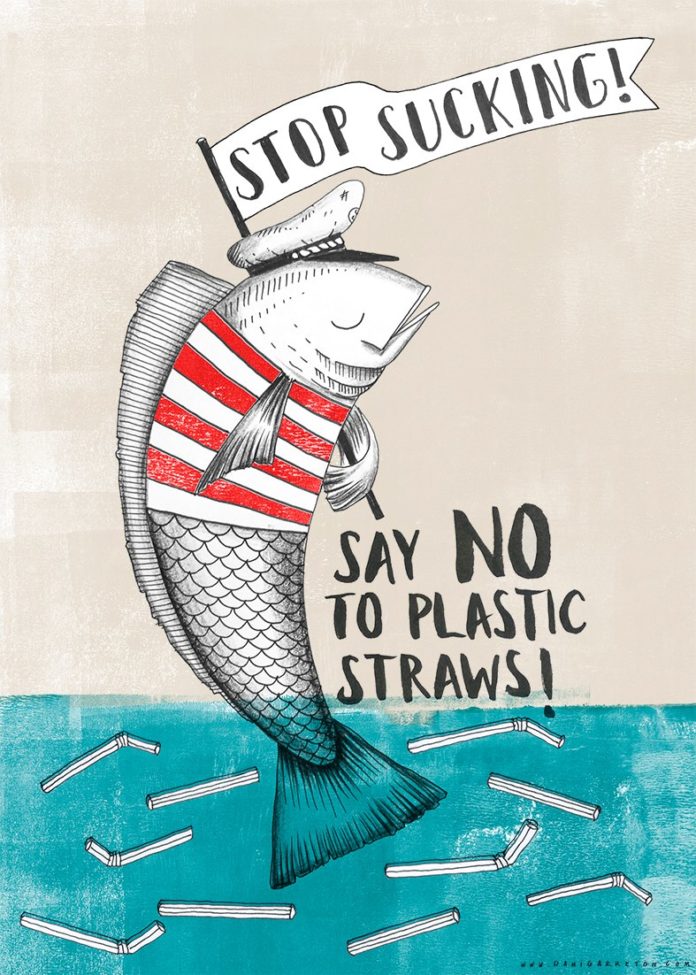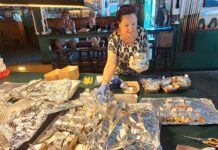Sorry plastic straws, you’re just too decadent and it’s time to say ’bye Felicia. This really isn’t a shock: the world is waking up and realizing our oceans are suffocating. Movements are growing from the European Union to Florida to ban plastic bags, bottles and, now, single-use plastic straws. According to studies, by weight, there will be more plastic in the ocean than fish by 2050. That’s not good, especially for a marine-centric region like the Keys, and Reef Relief is doing something about it.
Reef Relief launched its “Skip The Straw” campaign just six weeks ago and already nearly 50 businesses from Key West to Big Coppitt have taken the pledge to reduce single-use plastic straws. Excited by the momentum, Mill McCleary, executive program director, said, “Places are now coming to us and not just restaurants. We now have Key West Bed and Breakfast, so hopefully, resorts will catch on too.”
Spreading the campaign gospel, restaurants like Amigo’s Tortilla Bar are passing out stickers and Pepe’s has flyers on the tables letting people know about the initiative. “It’s got momentum and we will keep this campaign going for the next year or more, however long.” Reef Relief has just finished filming an informational video that will be released next week.
In 2015, a Texas A&M graduate student Christine Figgener found a turtle in Costa Rica with a long plastic straw embedded in its nostril. She and her colleagues filmed a video of the extraction — using pliers and considerable force — which has since been viewed 18 million times on YouTube.
“That was horrifying, the video,” said Bette Zirklebach of The Turtle Hospital. In the Keys, it’s quite common to find the hatchling turtles who have ingested small bits of plastic, like a piece of a straw.
“Sea turtles are opportunistic eaters, and unfortunately that means a lot of plastic that is caught in the seaweed. It can impact them to the point that they die.”
Brutus Seafood in Marathon has a policy of placing a wrapped straw next to a guest’s drink, in an effort to curtail not only the environmental impacts of plastic, but waste in general.
For straw lovers, straws do not have to disappear altogether; like whole wheat and Cheerios, there are healthy alternatives. Straws made out of paper, plant, vegetable and other materials containing nothing artificial or synthetic in their compounds, may be costlier but are encouraged. “The restaurants that have gotten on board aren’t really focused on the cost,” said McCleary. There are straws made out of bamboo or have a set of stainless steel ones on hand.
Fort Myers Beach officially banned plastic straws last November, weaning them out of bars and restaurants over a 90-day period. And now the Keys are getting on board. There are no plans for an outright ban just yet, but there definitely is a movement.
According to OceanConservancy.org, plastic straws are ranked #7 in items collected from the oceans globally. Items above them include plastic lids, bags and bottles. The top-ranked trash item is cigarette butts.


























